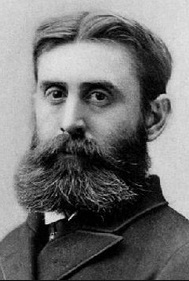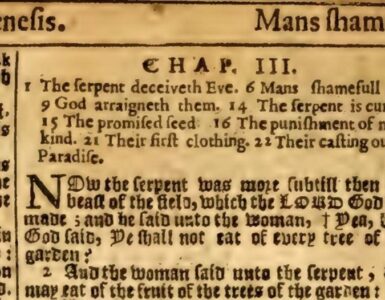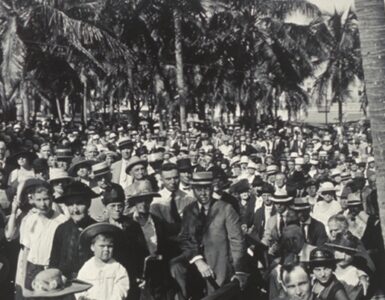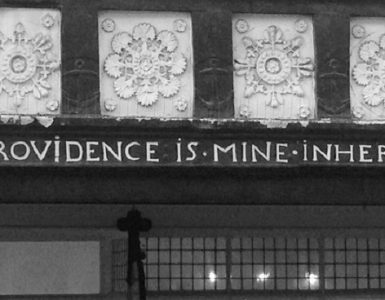In this post some information about resources for study of the Reformation will be provided; a short definition of indulgences will be given; sacerdotal will be defined; some comments will be made about “The Ninety-Five Theses in their Theological Significance” by B. B. Warfield; and then some references made regarding resources for the text of Luther’s Theses.
 For those interested in further study of the history and theology of the Reformation, the quadricentennial of Martin Luther’s posting of the Ninety-Five Theses in Wittenberg was celebrated in the October 1917 issue of The Princeton Theological Review. The articles included, “Martin Luther and John Calvin, Church Reformers,” by David S. Schaff ; “Luther and the Problem of Authority in Religion,” by F. W. Loetscher; “Galatians, the Epistle of Protestantism,” by G. L. Robinson; “Some Economic Results of the Protestant Reformation Doctrines,” by Chalfant Robinson; and the lead article by B. B. Warfield titled, “The Ninety-Five Theses in their Theological Significance.” The Warfield article is also available in The Works of B. B. Warfield, vol. 9, Studies in Theology, Oxford, 1932, which was reprinted by Baker in 2000 and is found on pages 483-514; this is the particular edition used by the author of Presbyterians of the Past in his comments later in this article. Princeton Seminary added to its four-hundred year Reformation celebration with the subject of the lecture sponsored by the L. P. Stone Foundation and delivered by Ethelbert D. Warfield titled, “Luther and His Influence on the Social Revolution of the Sixteenth Century.” Ethelbert was B. B. Warfield’s brother.
For those interested in further study of the history and theology of the Reformation, the quadricentennial of Martin Luther’s posting of the Ninety-Five Theses in Wittenberg was celebrated in the October 1917 issue of The Princeton Theological Review. The articles included, “Martin Luther and John Calvin, Church Reformers,” by David S. Schaff ; “Luther and the Problem of Authority in Religion,” by F. W. Loetscher; “Galatians, the Epistle of Protestantism,” by G. L. Robinson; “Some Economic Results of the Protestant Reformation Doctrines,” by Chalfant Robinson; and the lead article by B. B. Warfield titled, “The Ninety-Five Theses in their Theological Significance.” The Warfield article is also available in The Works of B. B. Warfield, vol. 9, Studies in Theology, Oxford, 1932, which was reprinted by Baker in 2000 and is found on pages 483-514; this is the particular edition used by the author of Presbyterians of the Past in his comments later in this article. Princeton Seminary added to its four-hundred year Reformation celebration with the subject of the lecture sponsored by the L. P. Stone Foundation and delivered by Ethelbert D. Warfield titled, “Luther and His Influence on the Social Revolution of the Sixteenth Century.” Ethelbert was B. B. Warfield’s brother.
Before delving into the Theses, it would be good to know the meaning of indulgence. The use of indulgences dates to the Crusades but by Luther’s day they had developed into a more complex aspect of Roman Catholicism with their attributes including forgiveness of both past and future sins and the release of a soul from purgatory. A faithful parishioner would buy an indulgence for his or her own sin or to have a deceased loved one released from purgatory. Thus, forgiveness came at a financial cost, which was one of the aspects of the indulgence system that motivated Luther’s call for debate of his points regarding indulgences.
The article, “The Ninety-Five Theses in their Theological Significance,” by B. B. Warfield is critical of historians such as A. Plummer, Philip Schaff, and T. M. Lindsay, because of their failure to grasp the organization, flow, theological precision, and importance of the Theses for challenging the papal system. In contrast with the opinions of the writers mentioned, Warfield commented, on page 503, that the
Theses constitute, in point of fact, a theological document of the first importance, working out a complete and closely knit argument against, not the abuses of the indulgence traffic, and not even the theory of indulgences, merely, but the whole sacerdotal conception of the saving process—an outgrowth and embodiment of which indulgences were.
The quote includes the word sacerdotal, which refers to doctrine that ascribes sacrificial functions and spiritual or supernatural powers to ordained priests, which can be seen, for example, in the doctrine of transubstantiation and the sacrifice of the mass. Warfield wrote further on the importance of the Theses, their place in Luther’s theology, and how Luther came to more fully grasp the importance of grace as it differed from Roman Catholic teaching. Luther’s Lectures on Romans had provided his epoch-making exposition of justification by faith, and even though this doctrine is not specifically in the Theses, his challenge of the system of indulgences developed from his understanding of the doctrine of grace from his study of Romans. Warfield concluded his article with the observation that Luther’s break with Rome “made the posting of these Theses the first act of the Reformation, and has rightly made October thirty-first the birthday of the Reformation” (529). As a Calvinist theologian, B. B. Warfield encouraged his readers to recognize the importance of the former Augustinian friar, Martin Luther, and his corner-stone event in the foundation of Protestantism that is remembered annually on October 31.
 There are several locations online where the theses can be downloaded or copied, but some versions have been loosely translated or modernized and in some cases are not accurate renditions of the original. If an online version is desired the most reliable source would be the digital archive of a Lutheran seminary library or the administrative website of one of the Lutheran denominations. Note that even though Luther’s posting in 1517 is known as the Ninety-Five Theses, his document is actually titled, A Disputation of Doctor Martin Luther on the Power and Efficacy of Indulgences. It can be seen why the shorter Ninety-Five Theses gained prominence. One of the best and most readily available sources for the Theses is Luther’s Works, vol. 31, Philadelphia: Muhlenberg Press, 1957, and its later printings that include the Theses with an introduction on pages 19-33. Another source for the Theses is the two volume collection, Works of Martin Luther with Introduction and Notes, Philadelphia: A. J. Holman, 1915, with its introduction by H. E. Jacobs, it includes the Theses, introduction, and some correspondence regarding the Theses. See also the handy pamphlet by Stephen J. Nichols, Martin Luther’s Ninety-Five Theses, Phillipsburg: P&R, 2002, which provides an introduction, the text of the Theses with some annotations.
There are several locations online where the theses can be downloaded or copied, but some versions have been loosely translated or modernized and in some cases are not accurate renditions of the original. If an online version is desired the most reliable source would be the digital archive of a Lutheran seminary library or the administrative website of one of the Lutheran denominations. Note that even though Luther’s posting in 1517 is known as the Ninety-Five Theses, his document is actually titled, A Disputation of Doctor Martin Luther on the Power and Efficacy of Indulgences. It can be seen why the shorter Ninety-Five Theses gained prominence. One of the best and most readily available sources for the Theses is Luther’s Works, vol. 31, Philadelphia: Muhlenberg Press, 1957, and its later printings that include the Theses with an introduction on pages 19-33. Another source for the Theses is the two volume collection, Works of Martin Luther with Introduction and Notes, Philadelphia: A. J. Holman, 1915, with its introduction by H. E. Jacobs, it includes the Theses, introduction, and some correspondence regarding the Theses. See also the handy pamphlet by Stephen J. Nichols, Martin Luther’s Ninety-Five Theses, Phillipsburg: P&R, 2002, which provides an introduction, the text of the Theses with some annotations.
I hope you have an enjoyable Reformation Day as you remember the portly Augustinian monk who courageously swung his hammer and drove the nails affixing his theses to the church door with each blow in Wittenberg echoing down the generations and heard around the world.
Barry Waugh





